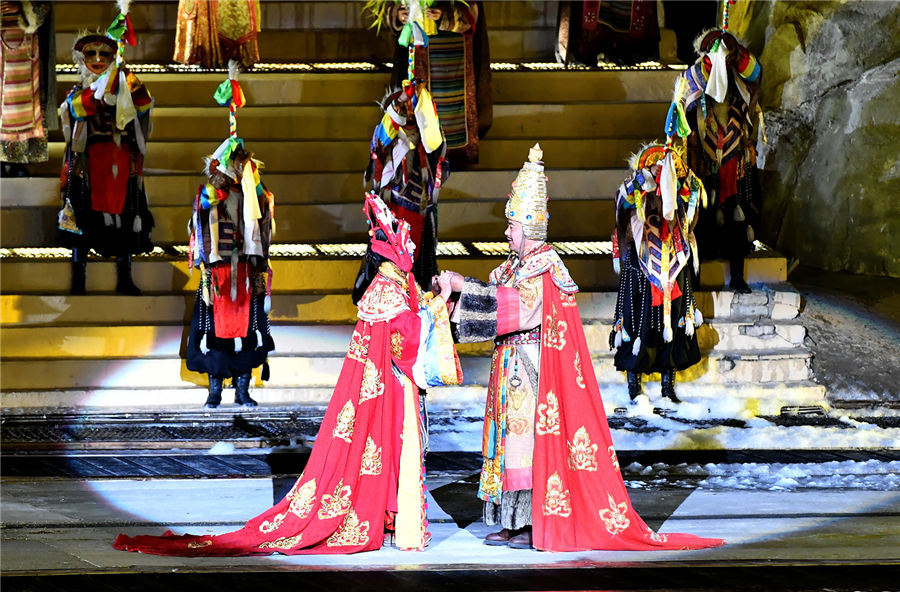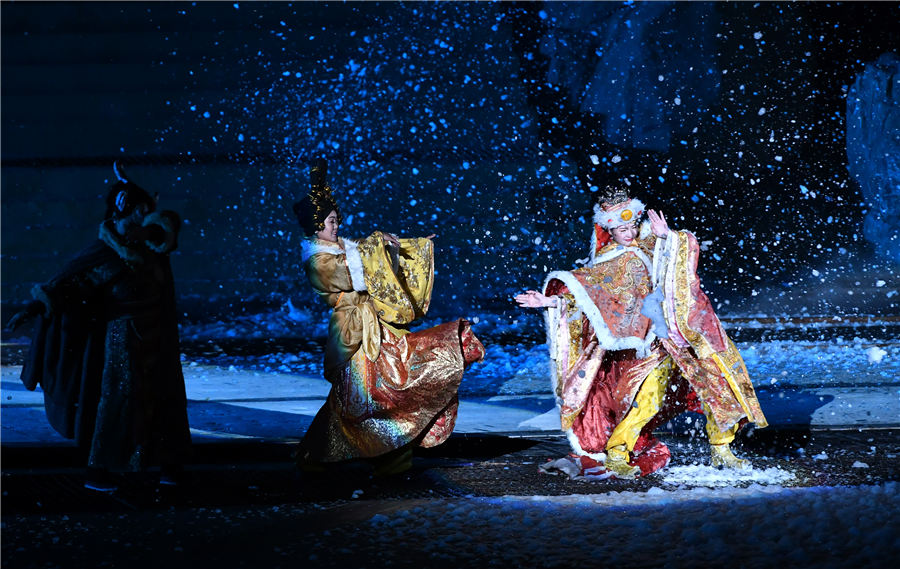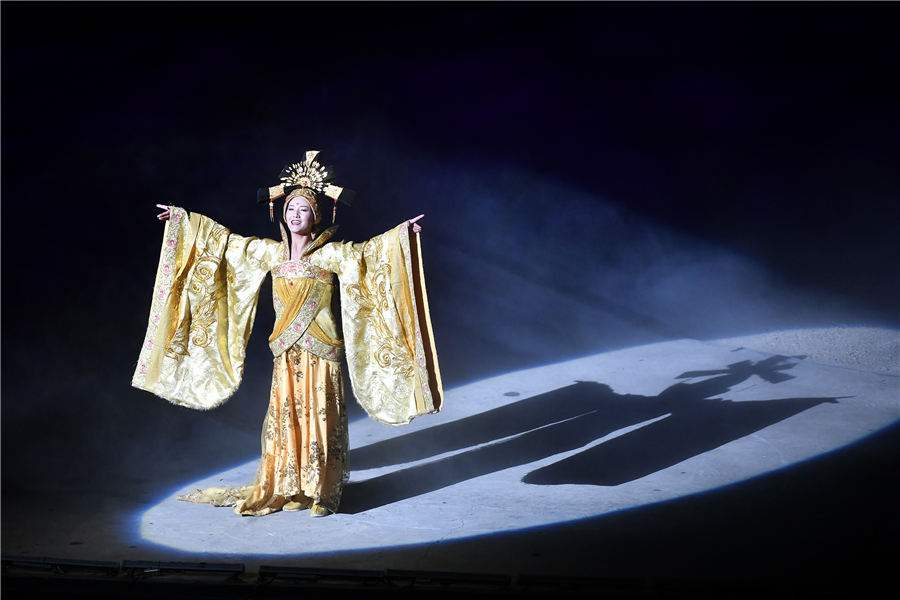
Actors perform a scene in which Tibetan King Songtsen Gampo marries Princess Wencheng of the Tang Dynasty (618-907) during a drama in Lhasa, Tibet autonomous region, on Sunday. [Photo by Li Xin/Xinhua]
An opera based on the life of a Tang Dynasty (618-907) princess has become a surprise hit in the Tibet autonomous region.
The outdoor opera Princess Wencheng was first presented in Lhasa in 2013 and has been an important tourist attraction ever since, along with the Potala Palace and Jokhang Temple.
In 90 minutes, the opera tells the story of Princess Wencheng, who traveled from Chang'an (today's Xi'an, Shaanxi province) to marry Tibetan King Songtsen Gampo more than 1,300 years ago.
The historical story is recorded in the murals of the palace and in the temple, which is renowned worldwide for the statue of Buddha Sakyamuni brought by Princess Wencheng.

Actors perform a scene in which Tibetan King Songtsen Gampo marries Princess Wencheng of the Tang Dynasty (618-907) during a drama in Lhasa, Tibet autonomous region, on Sunday. [Photo by Li Xin/Xinhua]
Apart from the statue, the historical records note that Princess Wencheng also brought silk clothing, books, grain, vegetable seeds, agricultural toolmaking methods and metallurgy techniques, which greatly promoted development in Tibet.
The opera began its seventh year on Saturday and will continue until Oct 31, the end of the region's tourist season. More than 1,000 performances of Princess Wencheng have been staged in Lhasa for more than 2.1 million people since its debut. There were 187 performances last year to 500,000 tourists.
The show has brought in around 770 million yuan ($114 million) in profit and provided jobs for more than 4,000 local people.
Chija Cering, a 58-year-old herder, has worked seven years in the theater. He plays a role in the show with his two yaks.
"I can earn 4,500 yuan per month, much than farming or grazing," he said.
More than 800 people have performed in the opera, and local farmers and herders have accounted for 95 percent. They do farm work in the daytime and as actors at night, earning around 3,000 to 4,000 yuan each month.

Actor performs a scene in which Tibetan King Songtsen Gampo marries Princess Wencheng of the Tang Dynasty (618-907) during a drama in Lhasa, Tibet autonomous region, on Sunday. [Photo by Li Xin/Xinhua]
The five-scene opera contains a dozen types of intangible cultural heritage and modern dance, which attracts young Tibetans.
Losang Danba, a 28-year-old actor in a local Tibetan opera troupe, applied for a part-time job at the theater. He has played eight roles in the show and earned more than 4,000 yuan a month.
"I not only display the typical Tibetan dance I've learned but also earn extra salary," he said.
Lu Wenjia, a tourist from Shanghai, remembered the Tibetan dance and clothes and said she also learned Tibetan history.
"The settings of the palace of Tang dynasty and Potala Palace are very impressive and grand," she said.
The show will probably be rearranged into an indoor opera and be staged in other places in China or even other countries, said He Ping, president of Usunhome Cultural Tourism, the company that runs the show.
As a sister opera of Princess Wencheng, the indoor opera Princess Jincheng, which tells the story of another Han princess marrying a Tibetan king, is in rehearsal and will open in June. |








7740f3b5-9ecb-438e-9052-76cb2d4bb671.jpg)

